'We are slaves on the farms': Women farmworkers want a seat at the table
Kayleen Morgan
18 February 2025 | 5:33Dina Ndleleleni, a retired farmworker, said that the desperation to make a living and the lack of education left women vulnerable to modern-day slavery.

Women farmers in the Western Cape.
CAPE TOWN - At the crack of dawn, hundreds of farm workers, mostly women, wait at a communal circle in De Doorns, a small town in the Western Cape's Winelands district; waiting for trucks typically used to transport cattle to transport them to various farms for casual work.
Similarly, they too pack onto these trucks despite regulation 247 of the National Road Traffic Act which doesn’t allow people to ride on the back of open trucks without safety measures.
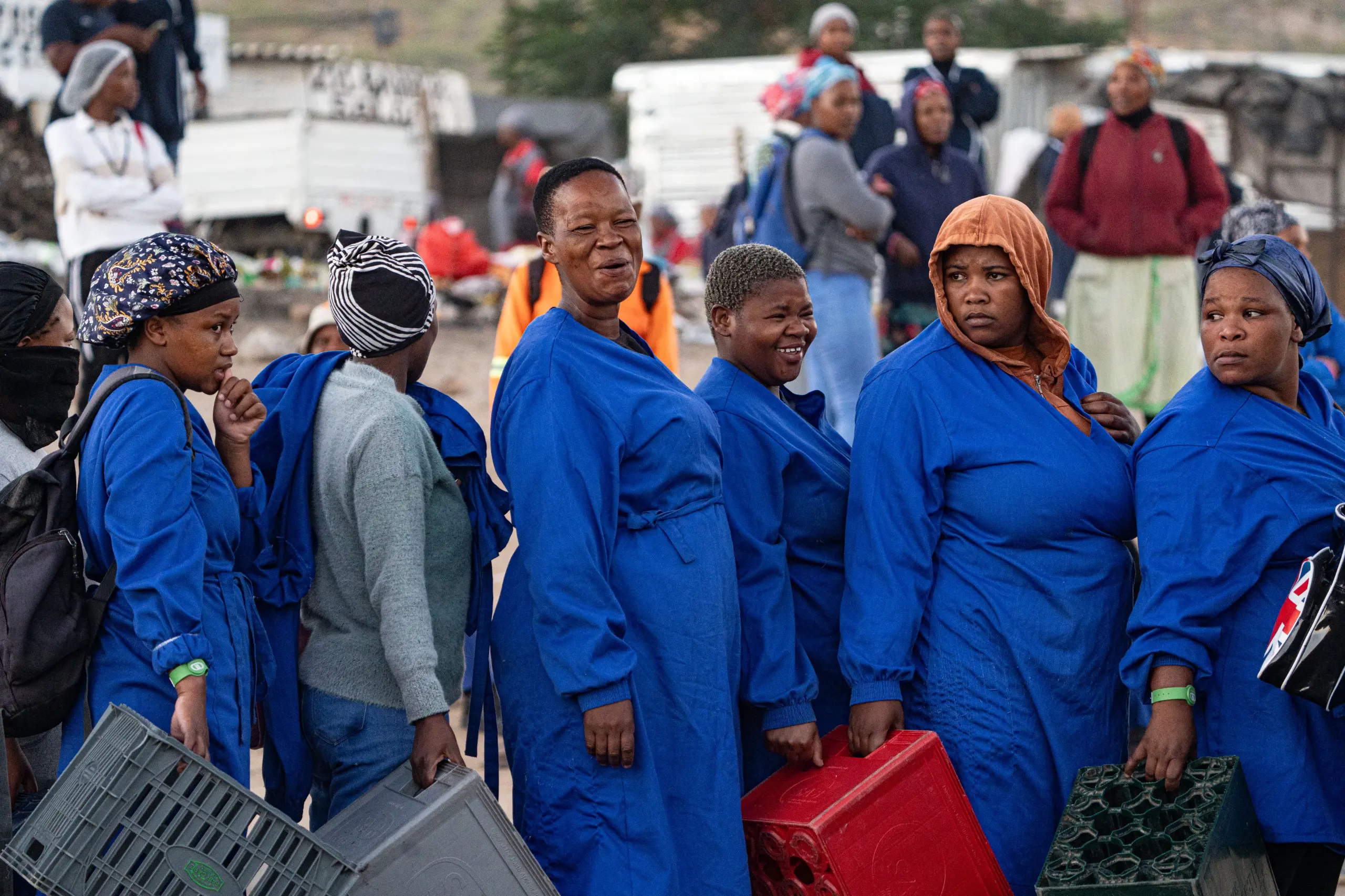
Farmworkers wait in line to be transported to work on the back of open trucks with no open safety measures. Picture: Kayleen Morgan/ EWN
While Finance Minister Enoch Godongwana this week prepares to address the nation on how the country’s money will be spent over the next fiscal year, the people responsible for feeding the nation are calling to be moved up the food chain.
Despite the introduction of the minimum wage and the extension of legislation to farmworkers, who were once not protected by the Labour Relations Act, farmworkers say monitoring and stricter implementation of these acts are needed.
Dina Ndleleleni, a retired farmworker, says the desperation to make a living and the lack of education leave women vulnerable to modern-day slavery.
Ndleleni and other women are calling for an increase in the minimum wage.
"You are slaves on the farms and slave time is gone. Enough is enough! What I want to hear from Minister Godongwana is that they’ll take care of farmworkers. That money is very small money. R28,79? That is not money, that is peanuts."
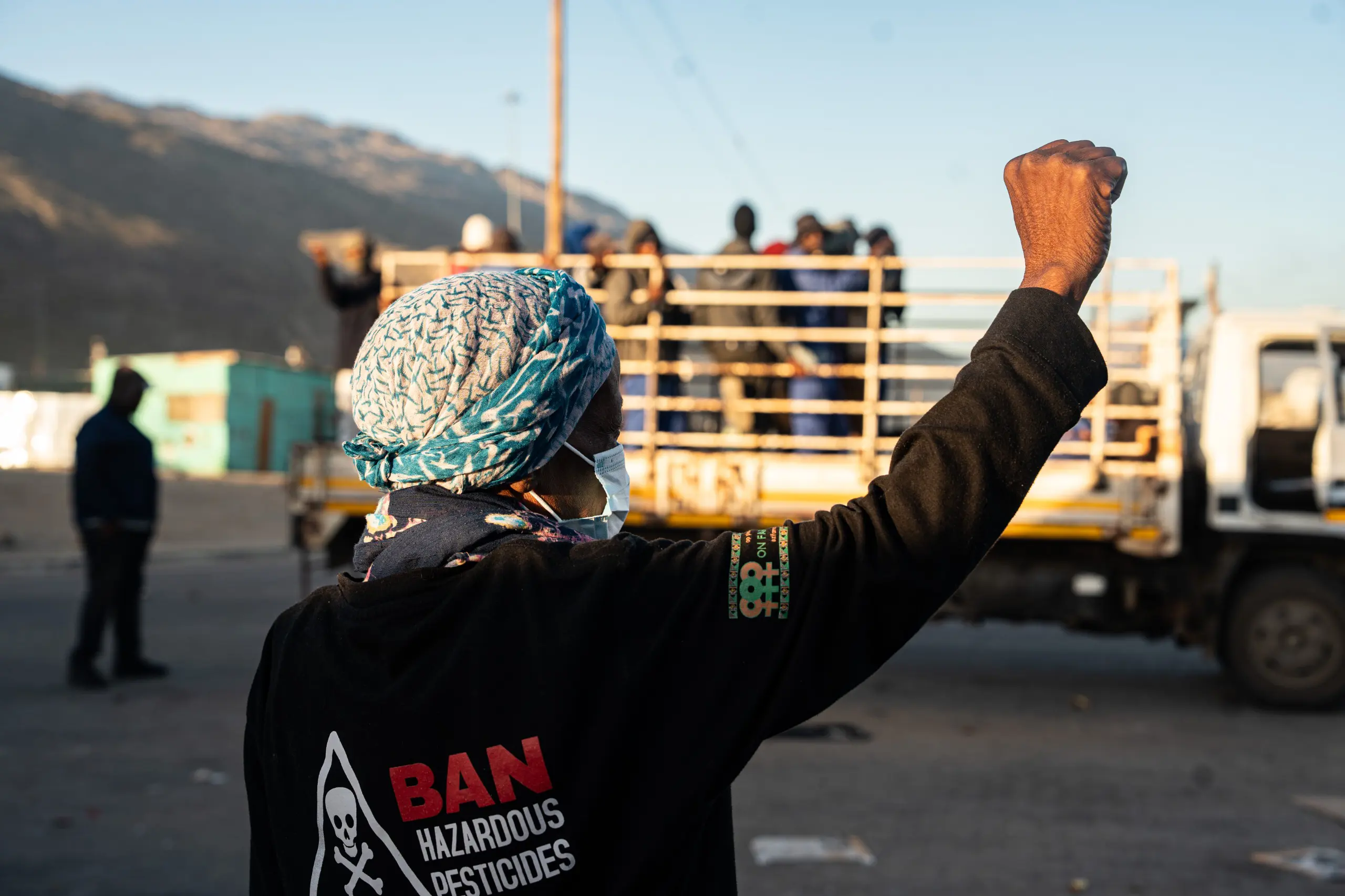
Sixty-three-year-old activist and retired farmworker, Dina Ndleleni, hoists a fist up at workers being transported from De Doorns in the Cape Winelands. Picture: Kayleen Morgan/EWN
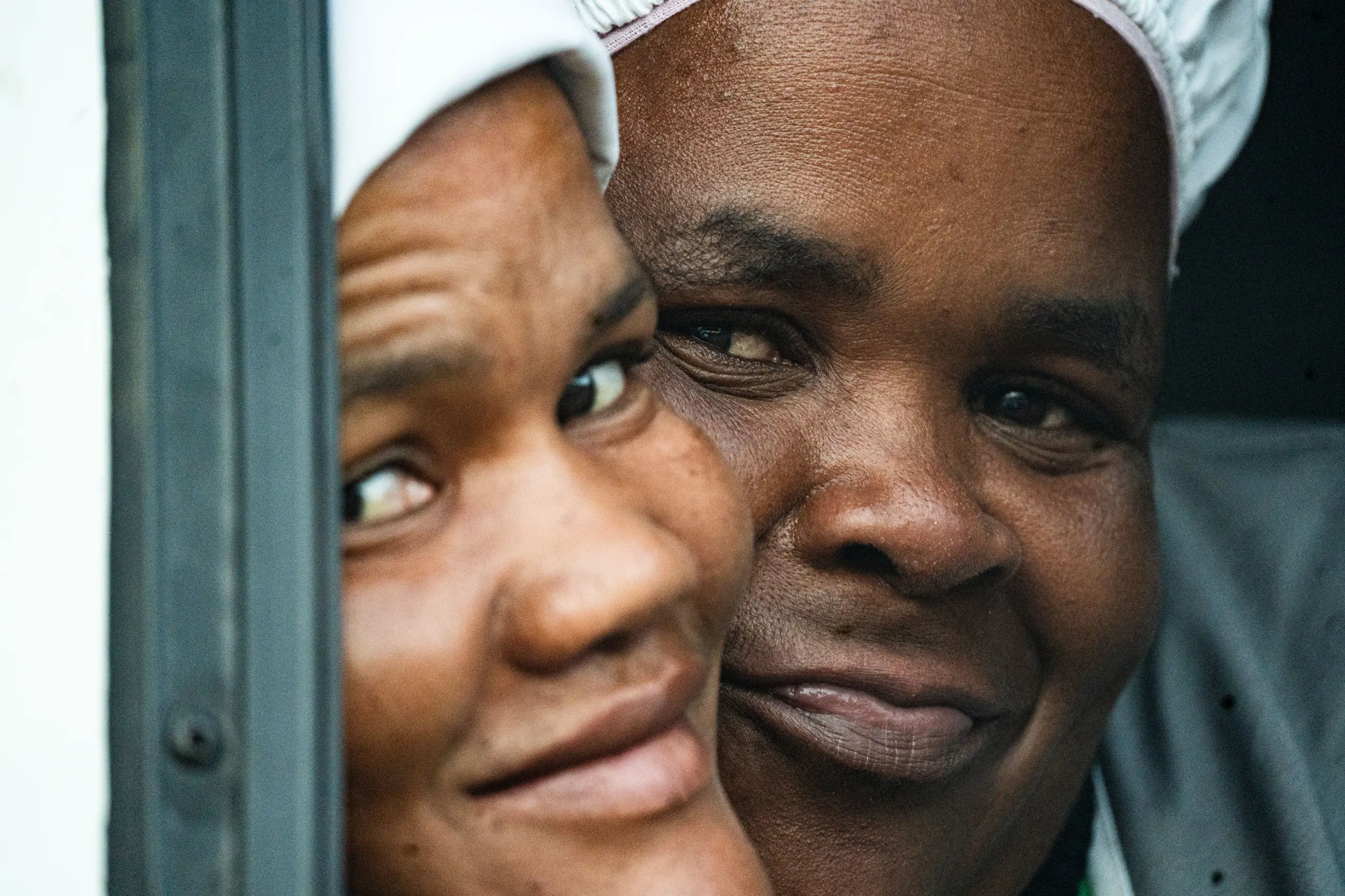
Picture: Kayleen Morgan/ EWN
Another woman, who prefers not to be named, sides with Ndleleni: "We are not coping, and it actually makes me angry because we do all this work and these farmers get a lot of money for our work and they pay us the minimum. It's not a living wage. You don’t even make it past a week with that money."
A study conducted by the Commission for Gender Equality shows that women farmworkers being marginalised in policy formulation, implementation and other land-related processes makes them among South Africa’s most vulnerable labourers, who are consequently subject to numerous forms of abuse.
"I try to push through at work but the circumstances we work in make it difficult. We’re women and there aren’t any toilets, so you do your business between the flowers. Can you imagine when we’re menstruating? We get cans of water, but they aren’t clean. Many of us women are scared to speak up because we’re scared we’ll lose our jobs," says 25-year-old Ashmica Louw.
Even with changes to legislation to support farmworkers, working in remote areas, a culture of patriarchal systems, job precariousness and the lack of monitoring of the treatment of farmworkers also excludes women on farms from access to better lives according to non-profit organisation, Women on Farms Project’s (WFP) co-director, Carmen Louw.
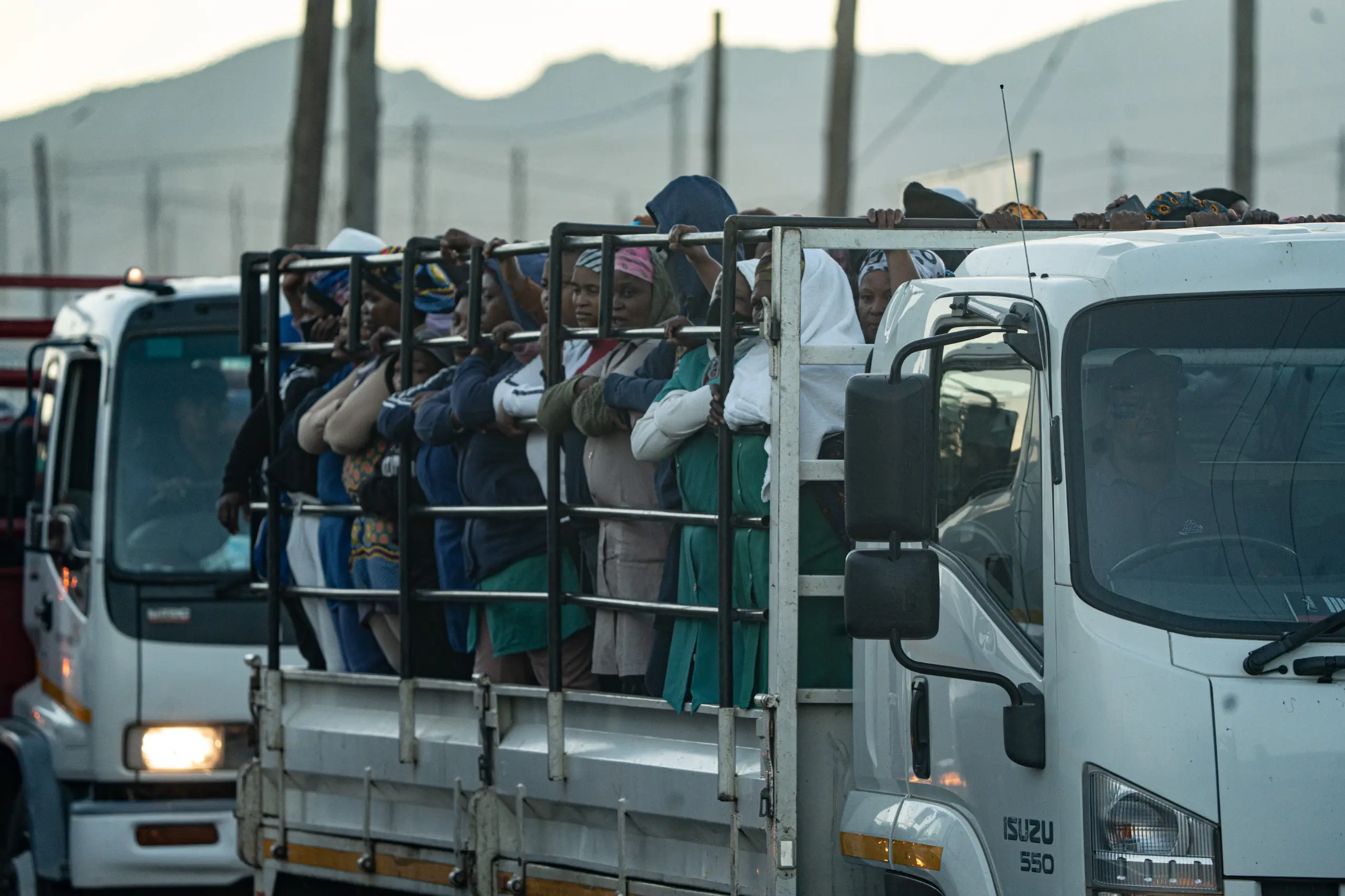
Farmworkers on their way to work in De Doorns, in the Western Cape. Picture: Kayleen Morgan/EWN

Picture: Kayleen Morgan/ EWN
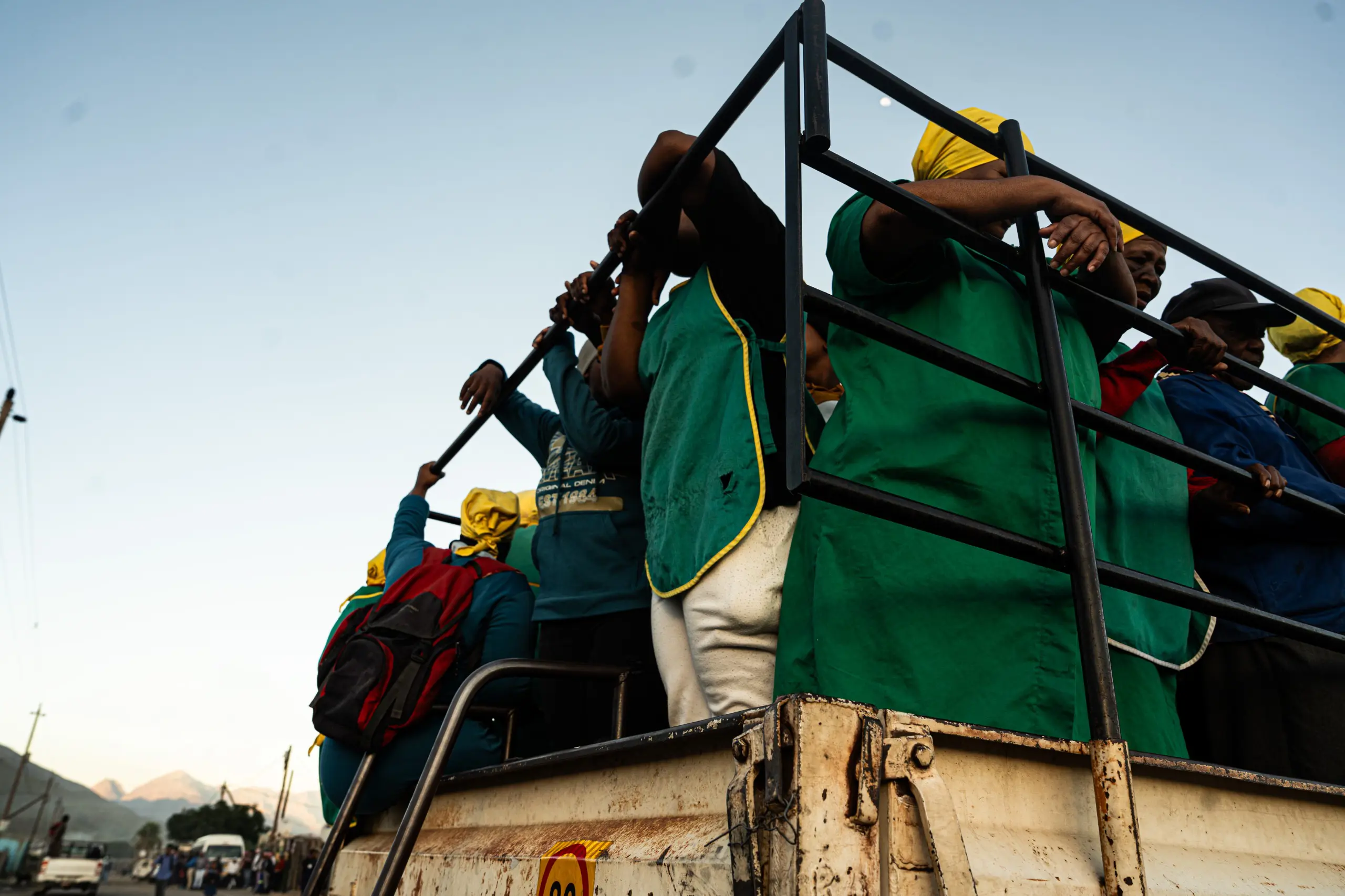
Picture: Kayleen Morgan/ EWN
Women farmworker’s challenges are intersectional and thanks to customary practices, males are favoured for permanent contracts, which allows them access to better credit, housing rights on farms and work benefits which women can't access.
"The employment contract and the housing contract are linked, and women are secondary occupiers on a farm either with a male partner, with a father, in the absence of a father or male partner, with a brother and an adult son, if there’s an adult son in the house," says Louw.
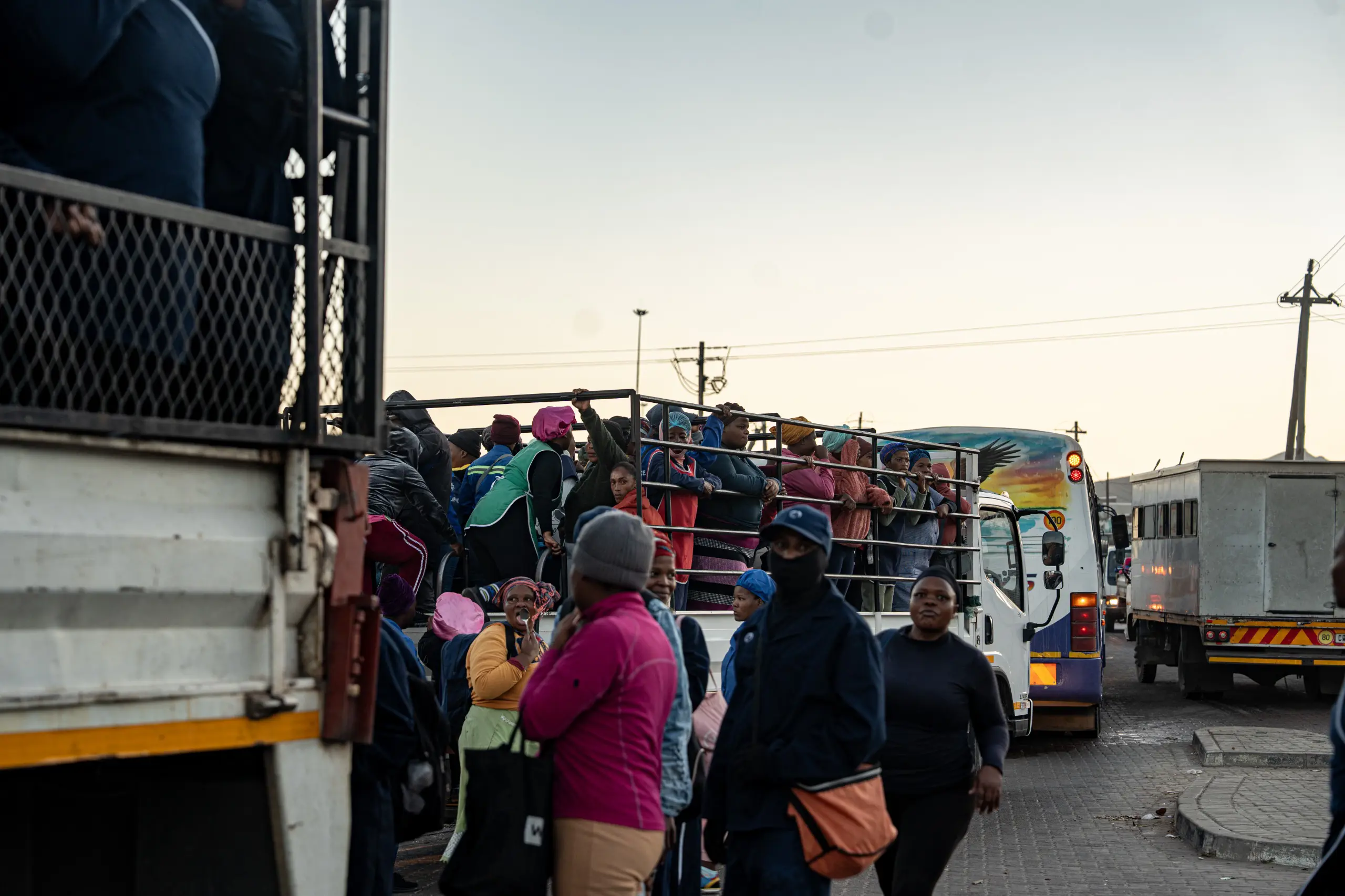
Farmworkers are transported to work on the back of open trucks with no open safety measures. Picture: Kayleen Morgan/EWN

Picture: Kayleen Morgan/ EWN
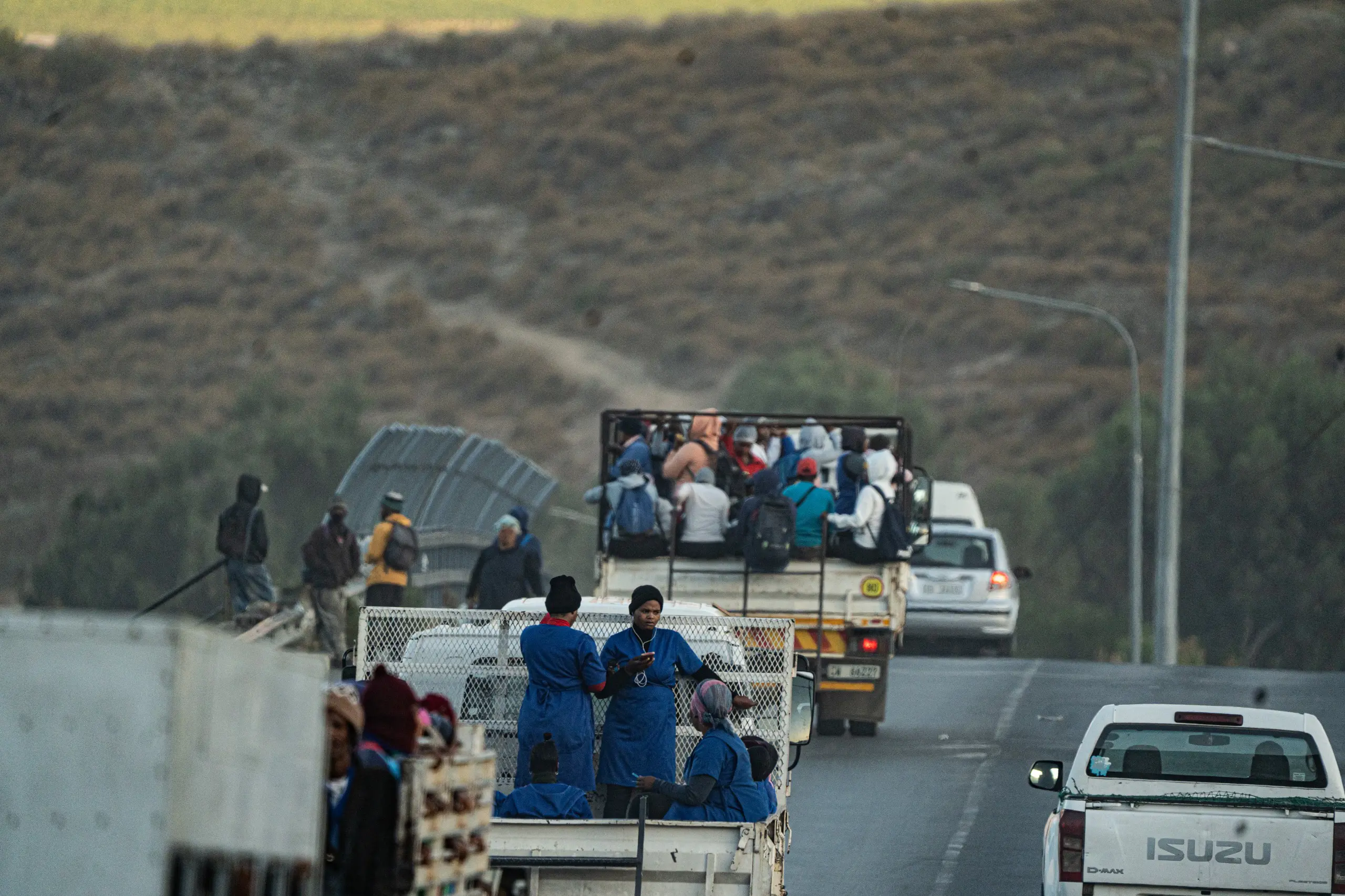
Picture: Kayleen Morgan/ EWN
This means when relationships or contracts end or if the male partner dies, women on farms are susceptible to evictions. Gender-based violence also increases, as is the case with a woman who spoke to EWN anonymously.
Penelope Snyman* [not her real name], who’s worked on a farm for over 25 years and married a team leader on the same farm, has been unable to escape the hands of her abusive husband because the house they share on the farm is under his name.
Snyman says because men support men, even beyond the sector, support from police officials is "imaginary".
"I must do as he [husband] says because I found him here. My life has been hell," she says.
Snyman, along with the Women on Farms Project, call for land reform and redistribution.
"If women have land and housing in their own right and they can at least provide for themselves to allow for livelihood independence, it will be easier to challenge and stand up for themselves," says Louw.














